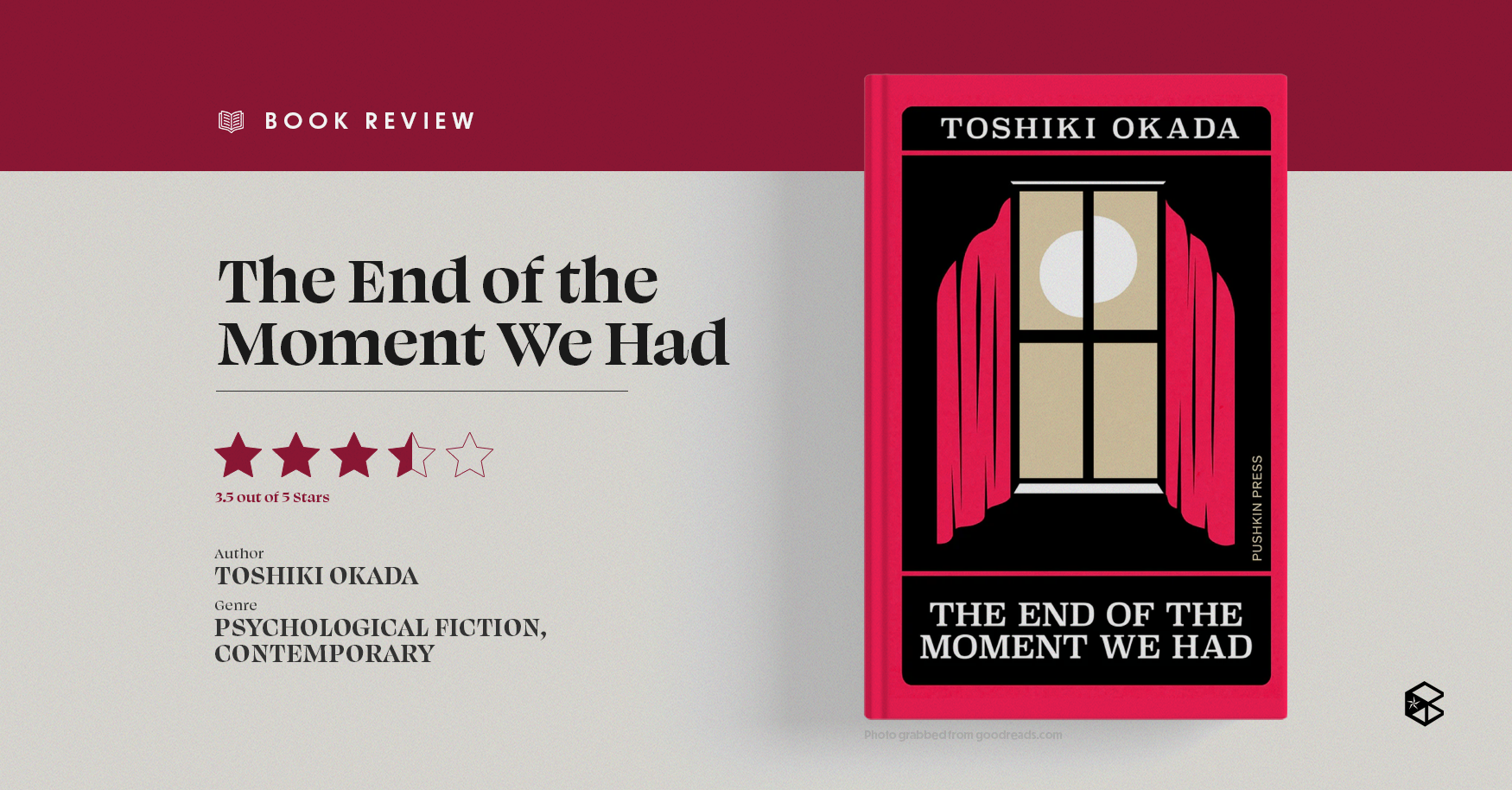Title: The End of the Moment We Had
Author: Toshiki Okada
Genre: Psychological Fiction, Contemporary
Rating: 3.5/5
From novelist-playwright Toshiki Okada comes a two-story collection told in a raw, stream-of-consciousness style, exposing people at their most vulnerable. The End of the Moment We Had centers on characters coping with reality through lust and stagnation, each tale unflinchingly revealing the internal battles of hope, regret, and longing that define the struggle to confront emptiness.
The novellas weave a narrative that includes ramblings and conversations, demonstrating how little individuals understand or even care about many of those they interact with—especially when they have no desire to engage further with such triviality.
And what comes after this desire?
The title story emphasizes the innate human nature to want for something or someone—opening on a drunken Azuma and a woman, whose name he never bothered to ask. They embark on a four-day journey into self-absorbed lust in the safety of a love hotel, finding ways to cope with the reality of the Iraq War imposing upon their lives, where protests raged on in the streets of the city, and others held meaningful discussions—the overarching base of their encounter in the first place.
Yet they remain mere observers, complacent to the structures and rules that have boxed them in—never participating or taking action. This notion of isolation for the couple is evident through the space they inhabit—no windows, the absence of any cellular contact, and not once turning on the television. They simply retire to their room and indulge themselves in intimacy, savouring their ability and privilege to escape the real world beyond the four corners of the building.
And when things end between them, almost as quickly as they came, the two are left with a rift that not even their previous physical encounters could bridge.
Despair often follows in footfalls of mold
Some reflections of life are not as hopeful as they should be. The second story in the collection, “My Place in Plural,” outlines in painful detail the downward spiral of a woman. Her self-imposed solitude is one borne of reflections on life, and particularly on her relationship with her husband.
Gradually, Okada allows the reader into the arguments that have settled into their lives and attacks on her mild-mannered partner, events that have more to do with her issues than his failings. She thought of pulling him down to her level, to make him understand her aches, which grew stronger with each passing minute. She imagines life returning to his eyes through a secret blog on the internet, where he would complain about her behavior and outbursts. He could be living an entirely separate life away from her.
She mulls over a multitude of memories, examining the dreary apartment they lived in—mold slowly taking over their home, spawned from neglect and the everlasting dampness. This environment is a living mirror of this crisis—an obsession with the state of her surroundings, from the cockroaches creeping around cupboards to the tatami mats covered by lino flooring, keeps her confined to the bed.
This collection holds up a mirror to the reader, showing them the need for one of like-mindedness to save them from destruction, whether self-inflicted or externally brought about. It reminds us that life is not glamorous—encapsulating the need to hurt, to make someone understand the internal turmoil seething forever within, through whatever means possible.
Okada speaks of escapist dreams and desperate hope—illustrating what it means to be irrevocably and sometimes disgustingly human.
The End of the Moment We Had is sold physically in Fully Booked. It is also available online through Amazon and Pushkin Press.


